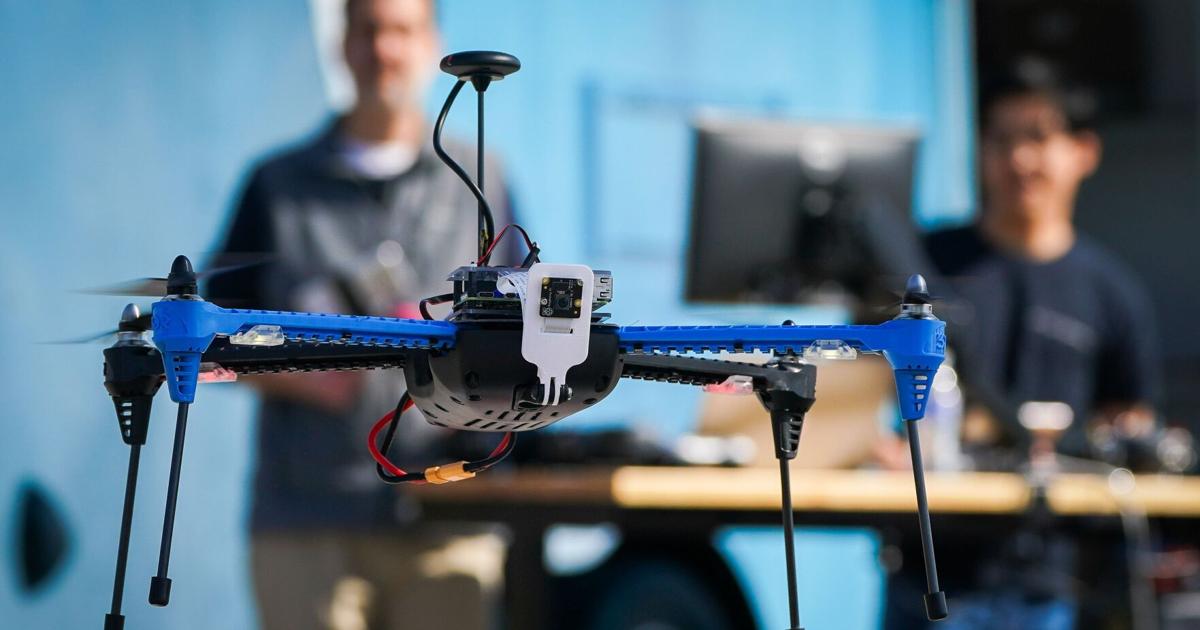On a summery day in March, the huge mesh drone cage at the University at Buffalo’s North Campus is humming as engineering professor Chase Murray and doctoral student Dowon Lee practice landing remote- and voice-controlled drones on a small autonomous land rover.
It looks like fun, but it’s also part of serious research on how artificial intelligence can equip fleets of drones to launch from the roof of a delivery vehicle and fly packages to customers who live farther from a distribution center than drones can fly.
“The reasoning is to extend the reach of drones that have a short battery life and can’t fly more than 10 miles at a time,” Chase explains. “So, the truck becomes like a mobile distribution center. And in my lab, we have pioneered the algorithms for that.”
UB has been conducting AI research for decades, and it’s paying off as big leaps in AI technology like ChatGPT fuel a global rush to catch up and lead the field.
With multimillion-dollar tech giants jostling for ownership of AI, state and national leaders want to position the public sector and academia as key players to ensure that equity, safety and “the public good” are as important as profits in the industry. And they are tapping UB to play a role in that goal.
Here’s how UB – and its big plans – fit in.
Empire AI
Last month, Gov. Kathy Hochul chose UB as the hub for a new state consortium, Empire AI, whose seven institutions will work to “secure New York’s place at the forefront of the artificial intelligence transformation,” she said.
Empire AI comes with an initial $400 million investment that will fund a new AI supercomputing facility at UB, giving it the same hardware, storage and data-crunching abilities that tech giants like Meta, Google and Microsoft have to spearhead AI research, innovation and job creation.
“Over the years, AI has become very tied to computing power, so the big advantage has been with the tech companies,…
Read the full article here

Leave a Reply